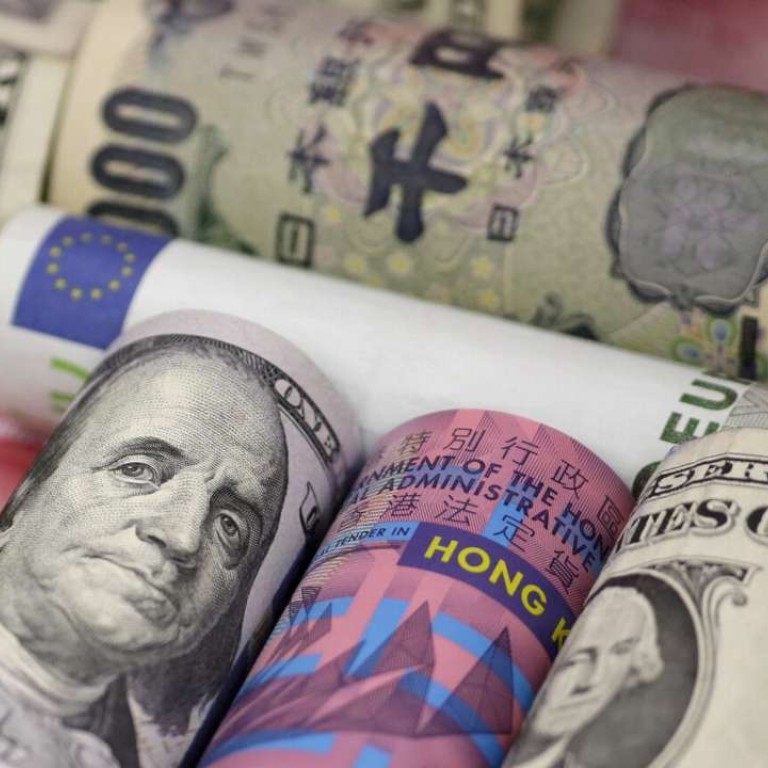
Hong Kong dollar is Asia’s worst-performing currency as Chinese yuan stabilises
Softness in the city’s currency reflects a flushed banking system rather than economic weakness
The Hong Kong dollar has weakened modestly this year even as the yuan has been stabilising and other Asian currencies rallied, but its softness reflects a flushed banking system rather than signs of economic weakness in the city, analysts say.
Ample liquidity conditions are proving to be an anchor for Hong Kong’s short-term interest rates such as the three-month Hong Kong interbank offerered rate, causing it to drop about 15 basis points this year.
In contrast, expectations that the US Federal Reserve is set to unwind quantitative easing pushed up the three-month London interbank offered rate by about 20 basis points.
The widening Hibor-Libor spread was exerting depreciation pressure on the city’s currency, analysts said.

The bank added that it had cut its Hong Kong dollar forecast to 7.79 per greenback by the end of the year from 7.76. The Hong Kong dollar is pegged to the greenback in a range of 7.75 to 7.85.
The Hong Kong dollar has dropped 0.2 per cent so far this year to 7.78, the worst performer among Asia’s 11 most traded currencies, according to Bloomberg data.
China’s yuan is stabilising and this is also helping Hong Kong’s liquidity conditions, hence the widening of the Hibor-Libor spreads.

But as yuan jitters ease this year, Hong Kong’s short-term liquidity has stabilised,at least until signs of overheating and inflation emerge.
“Markets are all quite stable now and we don’t see liquidity getting much tighter,” said Ben Kwong, head of research at KGI Asia.

